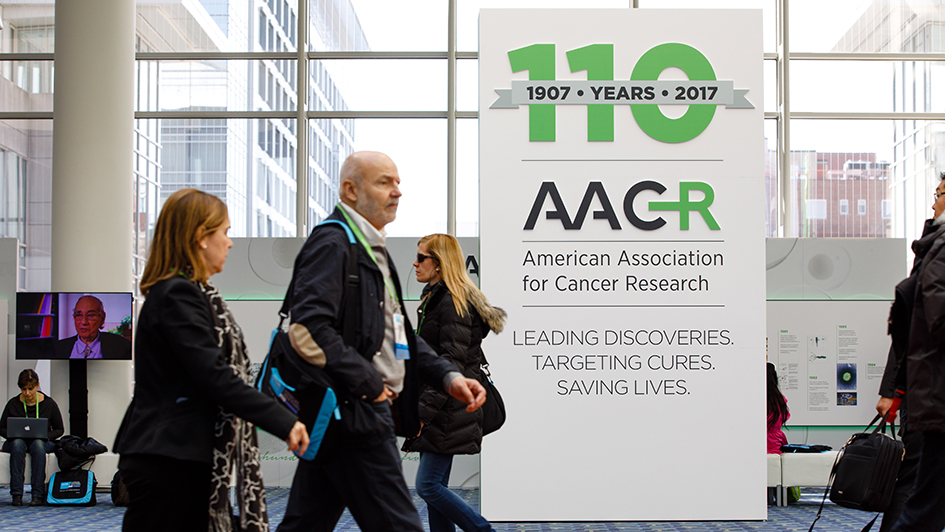
Photo: © AACR/Todd Buchanan 2017
The 2017 American Association for Cancer Research (AACR) Annual Meeting starts today (April 1) in Washington D.C. bringing together nearly 20,000 of the best oncology professionals from around the world including representatives from academia, industry, government and advocacy organisations.
The AACR is the world’s oldest and largest scientific organisation focused on cancer research with a reputation for high-quality and innovative research attracting the top scientists in the field.
Showcasing ICR science
Leading laboratory and clinical researchers from The Institute of Cancer Research will be attending to share their research and promote collaboration towards the prevention and treatment of cancer.
Over twenty ICR studies and collaborations are going to be on display during the five-day conference, showcasing a variety of exciting findings from the discovery of new drugs through to a number of clinical trials.
This year marks the 110th anniversary since the AACR was established and the inspiration of the founders is still relevant today: “To further the investigation and spread the knowledge of cancer”.
Developing scientific careers
Our Chief Executive Professor Paul Workman has been invited to take part in a mentoring session for Careers in Clinical and Translational Cancer Research on the first day of the conference.
Professor Workman will be leading a discussion on supporting career development and has some advice for those in the early stages of their career:
“Modern science is a team game – an intensively collaborative, creative process that draws together many people, each bringing different experiences and expertise. Increasingly, success is defined by those who can successfully pool their ideas, resources and expertise.”
Some ICR research highlights
There will be a poster presentation by Professor Workman's team on their work to discover genes that affect sensitivity to an inhibitors of the Chk1 target. Cancer cells often depend on Chk1 to be activated as a strategy to survive and replicate, therefore targeting this protein is a key step towards treating this disease.
There will also be a poster presentation by Dr Swen Hoelder's team on inhibitors of MPS1, a protein upregulated in a large number of tumour types.
Professor Udai Banerji will report on some of his most recent work on translational proteomics in a mini-symposium on the second day of the conference. His latest research and findings could influence how certain cancers are approached in future clinical trials.
Professor Andrew Tutt, Director of the Breast Cancer Now Research Centre at the ICR, will be speaking at one of the Advances in Breast Cancer Therapy session on the penultimate day of the five day conference. His session will focus on targeting genomic instability for breast cancer treatments.
Dr Magnus Dillon, from Professor Kevin Harrington’s team, will be presenting research on a study which is trialling a biological therapy in patients with advanced solid tumours.
The study is investigating the use of a new drug which targets a specific DNA repair pathway. Many cancers have high levels of replication stress and rely more heavily on a few remaining DNA repair pathways, which could make them more susceptible than healthy cells to particular drugs.
Follow the conference news
This is just a snapshot of the exciting, upcoming research at this year’s AACR conference. Keep up to date with conference by following along on social media using the hashtag #AACR17.
comments powered by